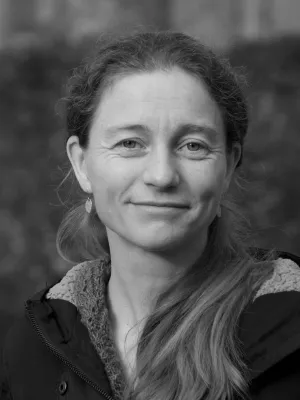
Katinka Johansen
Postdoc

Should end-users take their clothes off inside on a cold winters’ day? Actor perceptions of sociotechnical change processes and regime stress: The case of district heating in Denmark
Författare
Summary, in English
This extended case study research explores regime-level actor experiences of niche and landscape-level pressures on the regime via the empirical case of the Danish district heating (DH) sector. The paper focusses on foundational cultural-cognitive and normative institutions among DH sector professionals, regime-level actors at the centre of the sociotechnical change processes. The staged process of mixed methods research enquiry is informed by Geels’ Triple Embeddedness Framework, and it draws upon data collected from DH sector professionals who are employed at utilities throughout the sociotechnical Danish DH landscape.
Research reveals the frictions and fractions, misalignments, realignments, and the push and pull of both regime stability and sociotechnical change; it introduces the notion of a DH community culture, and it identifies the DH sector norms and standards for good heat supply service provision as reliable, affordable, and rather quiet heat supply service provision. These highly institutionalised norms mirror the historical heat supply policy priorities in Denmark, and they are at the very heart of the DH community culture.
As societies and technologies change, so do practices, belief-systems, norms, and values. Expectations of life change, and lifestyles change. DH professionals drawing upon full careers of sector experience suggested that the DH end-users increasingly view the DH service-standards as taken-for-granted societal goods. But might some end-user groups willingly tolerate slightly lowered stability of heat-supplies if this provided a “short-cut” to pro-environmental behaviours? Systematic research enquiry into what end-users really want (and might willingly accept) would serve as useful "reality check" for DH sector professionals in the hustles and bustles of everyday utility management, regardless of outcome. It might also provide clues as to how consumption of heat can become more visible and cognisant for the end-users again.
Finally, the change processes discussed here hardly represent radical changes. However, as this study stresses, even such moderate socio-technical changes can be subject to socio-technical change-inertia associated with sunk costs, infrastructural path dependencies, and cultural and cognitive lock-in mechanisms at multiple socio-technical levels. With time, perhaps this case study proves an exemplary case, symptomatic of socio-technical change-related dynamics, challenges, and potentials within also related institutional realms.
Research reveals the frictions and fractions, misalignments, realignments, and the push and pull of both regime stability and sociotechnical change; it introduces the notion of a DH community culture, and it identifies the DH sector norms and standards for good heat supply service provision as reliable, affordable, and rather quiet heat supply service provision. These highly institutionalised norms mirror the historical heat supply policy priorities in Denmark, and they are at the very heart of the DH community culture.
As societies and technologies change, so do practices, belief-systems, norms, and values. Expectations of life change, and lifestyles change. DH professionals drawing upon full careers of sector experience suggested that the DH end-users increasingly view the DH service-standards as taken-for-granted societal goods. But might some end-user groups willingly tolerate slightly lowered stability of heat-supplies if this provided a “short-cut” to pro-environmental behaviours? Systematic research enquiry into what end-users really want (and might willingly accept) would serve as useful "reality check" for DH sector professionals in the hustles and bustles of everyday utility management, regardless of outcome. It might also provide clues as to how consumption of heat can become more visible and cognisant for the end-users again.
Finally, the change processes discussed here hardly represent radical changes. However, as this study stresses, even such moderate socio-technical changes can be subject to socio-technical change-inertia associated with sunk costs, infrastructural path dependencies, and cultural and cognitive lock-in mechanisms at multiple socio-technical levels. With time, perhaps this case study proves an exemplary case, symptomatic of socio-technical change-related dynamics, challenges, and potentials within also related institutional realms.
Avdelning/ar
- Sociologiska institutionen
Publiceringsår
2023-05-05
Språk
Engelska
Sidor
1-17
Publikation/Tidskrift/Serie
Frontiers in Psychology
Dokumenttyp
Artikel i tidskrift
Förlag
Frontiers Media S. A.
Ämne
- Social Sciences Interdisciplinary
Nyckelord
- District heating
- renewable energy
- sociotechnical
- institutions
- energy transition
- Cognition
- norms
- Professional identity
Status
Published
ISBN/ISSN/Övrigt
- ISSN: 1664-1078

